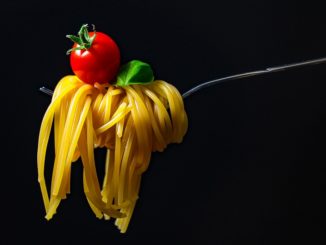Updated -2.55 CET
Rural Development risks serious funding cuts and de-prioritisation post 2020. This is a key message emerging -albeit obliquely – from Cork 2.0. Cork 2.0 is the follow up EU Commission Rural Development conference to the seminal Cork 1, held in 1996. Cork 1 led to a Rural Development Pillar of the CAP. Cork 2 has, despite generating a declaration with plenty of nice words, failed to focus on the fact that the Commission is de-prioritizing agriculture and rural development. Funding, staff and focus on rural areas will suffer, emboldening EU opposition movements. Oliver Moore has more.

Cork 2.0 has produced a Declaration called A Better Life in Rural Areas (available to download from our site: Cork Declaration 2.)
The ten points of the Cork 2 Declaration are:
1 Promoting Rural Prosperity; 2 Strengthening Rural Value Chains; 3 Investing in Rural Viability and Vitality; 4 Preserving the Rural Environment; 5 Managing Natural Resources; 6 Encouraging Climate Action; 7 Boosting Knowledge and Innovation; 8 Enhancing Rural Governance; 9 Advancing Policy Delivery and Simplification; 10 Improving Performance and Accountability.
The 10 headings of #EU_Cork2 declaration pic.twitter.com/e4OAbTK8qI
— ERIAFF Network (@ERIAFF_Network) September 6, 2016
“Encouraging climate action and improving performance and accountability” differ from what’s in the 1996 Declaration. There were plenty of soft words, on bottom up approaches, and “rural proofing”
#EU_Cork2 declaration calls for “rural proofing” of all EU policies and recognition of “rural identity” — Farmers Journal (@farmersjournal) September 6, 2016
and even an emphasis on a results-orientated approach in the conclusion. However, the money and prioritisation may not simply be there for farming and rural development anymore. A move from grants to loans and “financial instruments” has already been proffered by European Investment Bank
EIB predicts decline in #CAP funding post-2020, with significant rise in use of financial instruments https://t.co/3DMQ1fFZPc #EU_Cork2 — Adam Sharpe (@Adam_AgraEurope) September 6, 2016
Indeed, Former Commissioner Franz Fischler went so far as to question the Pillar system of CAP:
Let’s stop thinking in silos. We should question the pillar system of #CAP – Fischler at #EU_Cork2 — Farmers Journal (@farmersjournal) September 6, 2016
It is also the case that, based on the priorities of the Commission, Farming and Rural Development have been placed as the lowest priority of all EU policies, which will lead to a serious reduction of funding, staff and attention given to the rural regions of Europe. This was not made directly clear at Cork 2, which puts the optics and positive language into sharper focus.
Convening another Cork conference has been quite a hasty process. Only a few months ago Commissioner Hogan announced the idea to launch further consultations with stakeholders on the future of CAP and rural development. A new CAP consultation process is to start next year, so the time is ripe for collecting ideas on a new reform of CAP. NGOs were concerned that Cork 2 would simply rubber stamp a pre-produced conference declaration. However even in a very short time of two days working groups a wide range of issues were discussed and new common strategies and demands included in the final document.
Moderator Heino von Meier of OECD insisted that the declaration could only be the beginning of a broad debate and mobilisation of the rural world to press for the changes needed.
But the decisive battle is still to come and should have been revealed along with the specific rural development issues: where is the CAP going and how could the two pillars be replaced by a genuine new policy which takes into account the demands for more sustainable food production to overcome the growing challenges farmers and rural people face?
While in 1996 former Commissioner Fischler tried to focus on rural development as an alternative approach to farming and rural economies as a holistic approach, today rural development schemes are still the figleaf for bad farming policies and operate primarily as compensation for economic losses.
And yet, behind the scenes in the corridors of power, insiders reveal that Rural Development in particular and agriculture in general are fast being placed at the back of the funding and priorities queue. This is all quite different from 20 years ago, when a Cork meeting led to the Rural Development (RD) Pillar of the CAP.
Specifically, the Declaration which emerged from the 1996 event stated, as point 7: “The application of rural development programmes must be based on coherent and transparent procedures, and integrated into one single programme for rural development for each region, and a single mechanism for sustainable and rural development.” And this indeed happened, with Pillar 2 of the CAP. Around that time, pressure had been mounting from environmental and rural groups, which made the case all the stronger.
However “the difference between Cork and Cork 2.0 is that the agriculture and RD community is much more in the defense and much more is at stake to be lost” a delegate told ARC2020. “The move towards the second pillar was still taking place in an EU which was enlarging, not shrinking. Today issues like external security and migration are high on the agenda and candidates to take up funds which low priorities like CAP and RD may be losing.”
Indeed, it appears likely that there will be severe staff cuts in DG AGRI, meaning there will be fewer people to work on agriculture and rural issues. This in itself signifies a likely cut in the overall CAP and specifically the RD budgets.
Cork 2 is also rife with rumours that RD might be drawn into the cohesion policy funds which would mean that urban and rural policies and programs would be drawing on the same funds with no guarantee that specific rural needs and knowledges would be be adequately represented.
At the final discussion of working groups, Professor Michael Dower (of Prepare and the European Rural Parlaiament movement also pointed at an important aspect: “In a context of rising opposition to the EU as a concept many voices are under-represented. Those in rural poverty, such as small or subsistence farmers, minorities, refugees and others. We have to make specific measures for these groups”.
More
Recordings:
Opening speeches
- Phil Hogan
 [313 KB] , Commissioner for Agriculture and Rural Development
[313 KB] , Commissioner for Agriculture and Rural Development - Czesław Adam Siekierski
 [267 KB]
[267 KB]  , President of the Committee on Agriculture and Rural Development, European Parliament
, President of the Committee on Agriculture and Rural Development, European Parliament - Gabriela Matečná
 [149 KB]
[149 KB]  , Minister of Agriculture and Rural Development, Slovakia
, Minister of Agriculture and Rural Development, Slovakia
Workshops
- Workshop 1: Jobs, Growth and Investment in the agri-food supply chain and the wider rural economy, YouTube: Lithuania/Bulgaria
- Introduction Davidova
 [278 KB]
[278 KB] - Summary report Jagoe
 [267 KB]
[267 KB]
- Introduction Davidova
- Workshop 2: Rural Environment, Climate & Water, YouTube: Agri-Env
- Introduction Baldock
 [293 KB]
[293 KB] - Summary report Hart
 [447 KB]
[447 KB]
- Introduction Baldock
- Workshop 3: Targeting innovation to farmers’ needs, YouTube: The innovation one
- Introduction Rickson
 [533 KB]
[533 KB] - Introduction Erjavec
 [780 KB]
[780 KB] - Summary van der Schans
 [240 KB]
[240 KB]
- Introduction Rickson
- Workshop 4: Rural Viability
 [396 KB] , YouTube: Digitalisation (Ludgate)
[396 KB] , YouTube: Digitalisation (Ludgate)
- Intro Stalgren
 [396 KB]
[396 KB] - Intro Hubbard
 [81 KB]
[81 KB] - Summary Länts
 [266 KB]
[266 KB]
- Intro Stalgren
Panel on innovative and alternative delivery mechanisms (Tuesday)
- Doug O’Brien
 [609 KB] , Senior Policy Advisor for Rural Affairs with the White House Domestic Policy Council
[609 KB] , Senior Policy Advisor for Rural Affairs with the White House Domestic Policy Council - Werner Schmidt
 [2 MB] , Director, Environment and Sustainable Territorial Development, European Investment Bank (EIB)
[2 MB] , Director, Environment and Sustainable Territorial Development, European Investment Bank (EIB) - Janez Potočnik, Co-Chair of the International Resource Panel (IRP), United Nations Environment Programme (UNEP)
Workshops (conclusions)
- Workshop 1: Jobs, Growth and Investment in the agri-food supply chain and the wider rural economy
 [267 KB]
[267 KB] - Workshop 2: Rural Environment, Climate & Water
 [293 KB]
[293 KB] - Workshop 3: Targeting innovation to farmers’ needs
 [780 KB]
[780 KB] - Workshop 4: Rural Viability
 [81 KB]
[81 KB]






Hi Katalin
we agree of course that there is great value in these initiatives you mention. (we highlight and promote them all the time!). the phrase used was more in reference to how the Commission views Pillar 2 activities. Organic farmers for eg get paid for having a lower stocking rate because this is “income forgone”. Similarly with the other issue of the fig leaf – once a MS has plenty of farmers signed up to RD, it can ignore the negatives of Pillar 1 as its ‘doing something’. So I think we agree, its just the phrase we used above was for/from a particular perspective.
Hi there, when you say that ‘today rural development schemes are still the figleaf for bad farming policies and operate primarily as compensation for economic losses’, I think you underestimate the role of major schemes like LEADER, High Nature Value or Agro-Environmental & Climate. In many rural places, should these EU second pillar measures not exist, there would be more desertification and abandoned landscapes.